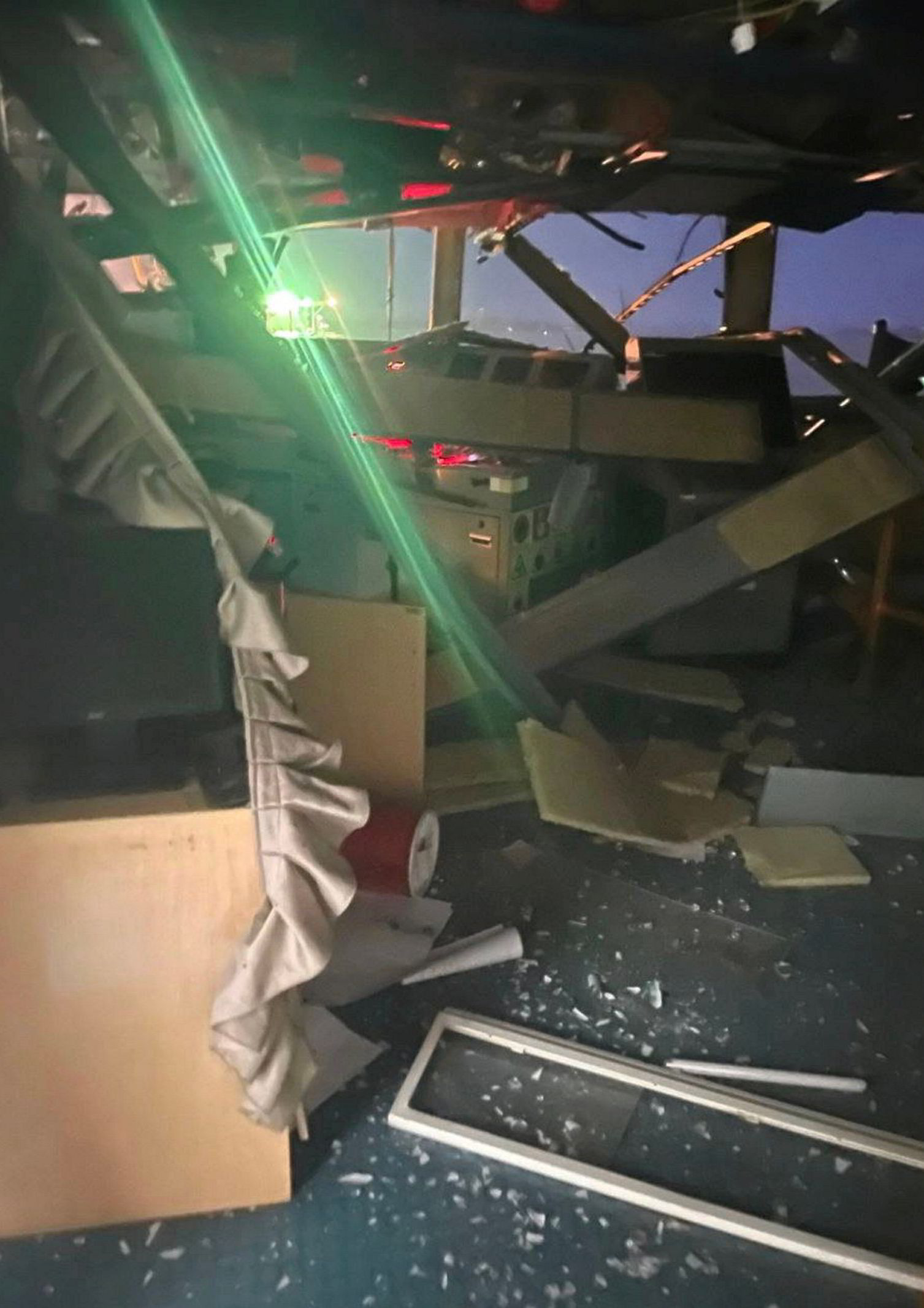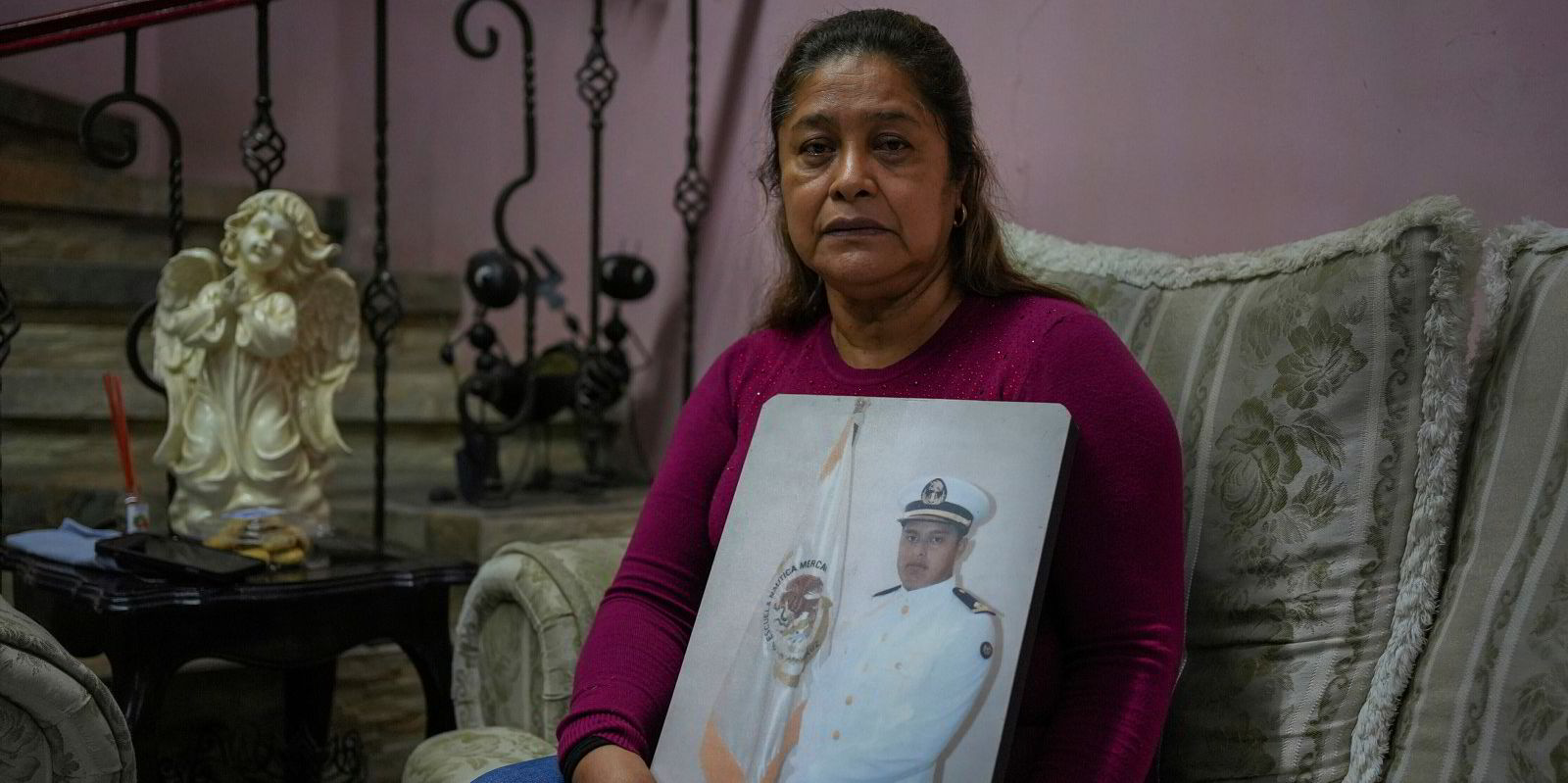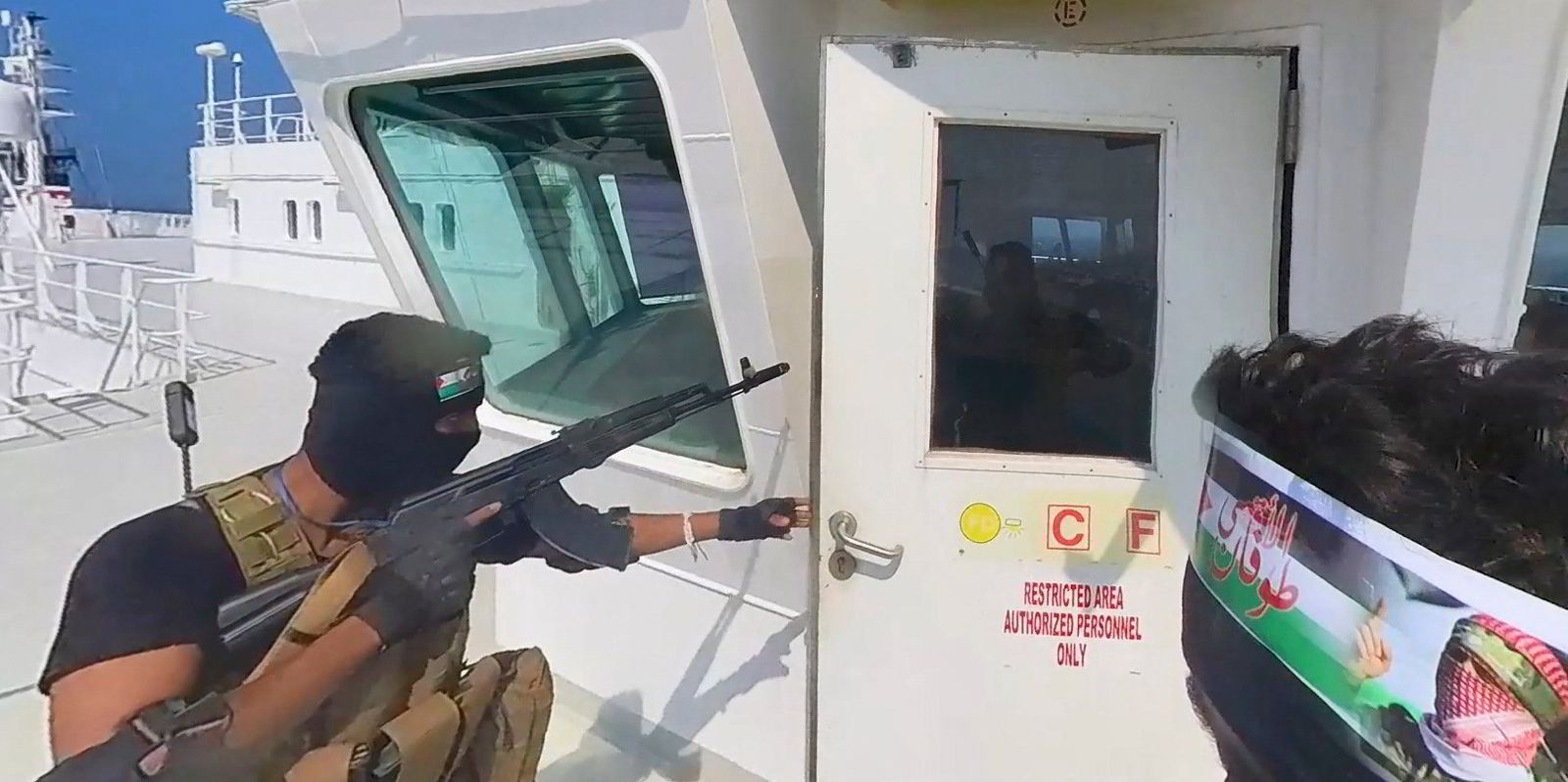Even though their faces are blurred in the footage released by Houthi militants, there is little doubt that the crew members on a seized Ray Car Carriers vessel underwent a harrowing experience.
The incident is the latest example of seafarers finding themselves the main victims of the way geopolitical struggles insert themselves into the maritime realm, this time through the actions of an Iranian proxy group that has mirrored the tactics of its sponsor.
In the video purporting to show the seizure of the 5,100-ceu car carrier Galaxy Leader (built 2002), the hijackers are seen opening the door to the bridge with their assault rifles pointed at crew members.
The seafarer who appears to be closest to the armed men who have just burst into his workplace raises his hands and then is seen ducking towards the floor.
It was a scene that was clearly designed for the camera — so much so that an assailant’s selfie stick-sized camera boom is visible in the reflection in the bridge’s window.
The men on the bridge seem to be caught by surprise. Before the door is opened, one is seen using binoculars to look towards the bow, rather than in the direction of the armed hijackers who have swept in from the aft.
None of the footage shows any sign of armed guards on the ship, so there was no need to point assault rifles in their faces to take control of the vessel.
This footage has not been authenticated, and it is not known how much of the video was staged once the militants secured control of the vessel.

The vessel has now been anchored off the Yemeni port of Hodeidah, according to TankerTrackers.
That is where the 25 Galaxy Leader crew members of Ukrainian, Bulgarian, Filipino, Mexican and other nationalities find themselves as prisoners in a war in which they play no part.
It is a gross violation of the laws of war and the sea for a ship to be targeted by militants for the sole reason that its owner is Israeli — and the Houthi militants who hijacked the Galaxy Leader have given no other explanation than this racist justification.
And it is wrong that shipping companies should face greater risks, and potentially greater costs like insurance, based solely on their links to Israel.
But it is tragic that the situation means seafarers should find themselves facing the barrel of a gun and then becoming hostages.
Unfortunately, putting seafarers in the crossfire of global conflict is a recurring menace in a fraught geopolitical environment. We saw it in previous Middle East flare-ups, and we are still seeing it in the Black Sea, where a Russian missile strike in Odesa took the life of a pilot and injured three seafarers.
Bulgarian Pavel Bogdanov, who once worked on the Galaxy Leader before turning to a career in tech, wrote on LinkedIn that incidents like this endanger the lives of people across multiple nationalities who are united by “dedication to their profession” as mariners.
“They deserve to work in safe environments, free from unnecessary risks imposed by external forces,” he said.
“It’s essential to recognise their plight, advocate for their safety and ensure they aren’t forgotten amid global geopolitical tensions.”
Shipping companies must choose mariners’ safety over schedules, and industry stakeholders must be strident voices for the hostages’ release and for measures to ensure the safety of the remainder working at sea.
Mexican seafarer Manuel Rolon was among the lucky ones — but just barely.
According to El Universal newspaper, he stepped off the Galaxy Leader to start a vacation at a port just before the hijacking.
Two of his countrymen are among the hostages.
“On board there are great men who just long to be with their families,” he said in the newspaper’s report.
The Houthis have said that a ceasefire in Gaza and delivery of aid are key to releasing the Galaxy Leader, but even talks heading toward a temporary truce between Israel and Hamas are unlikely to ease the risk that other seafarers will face the same plight.






